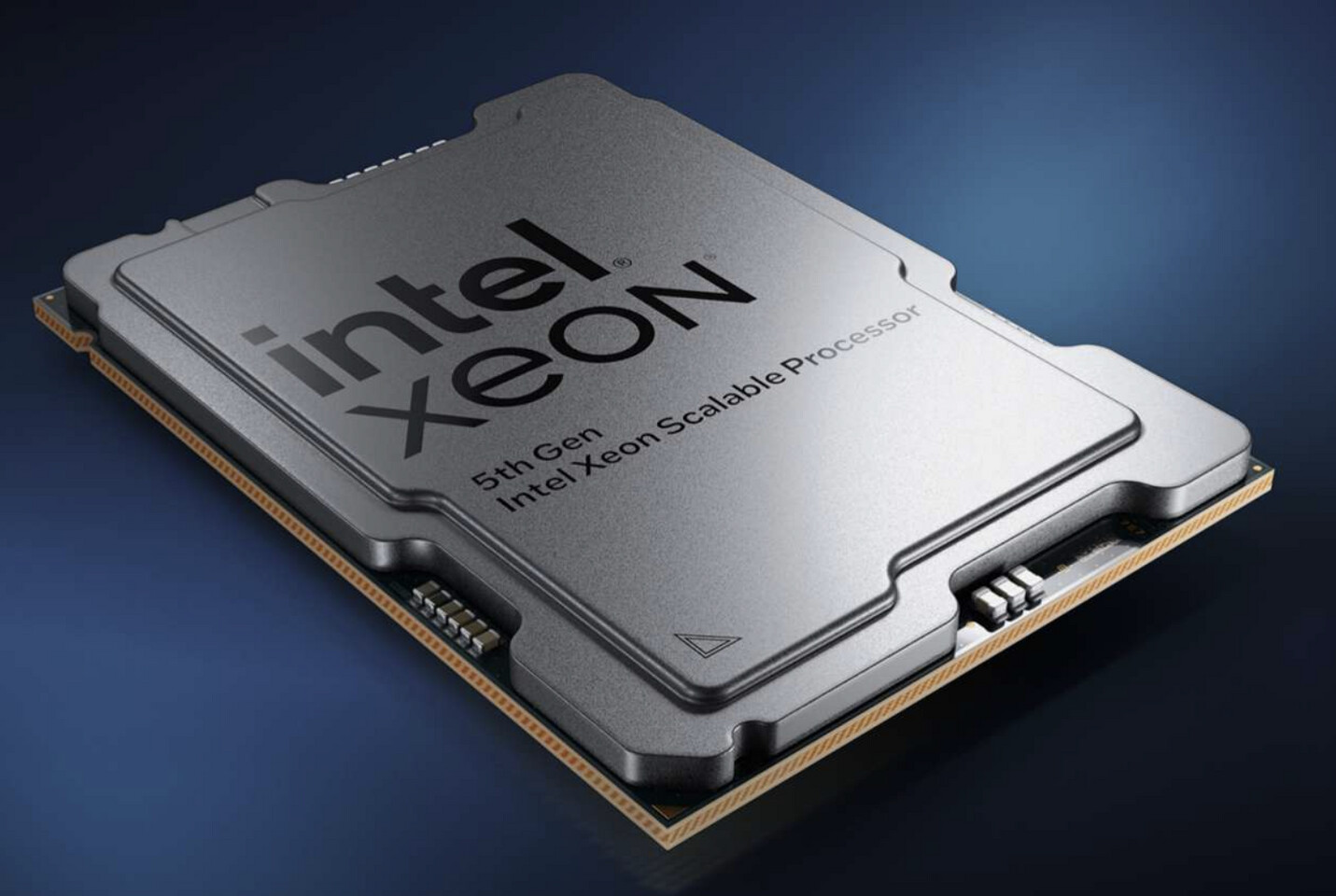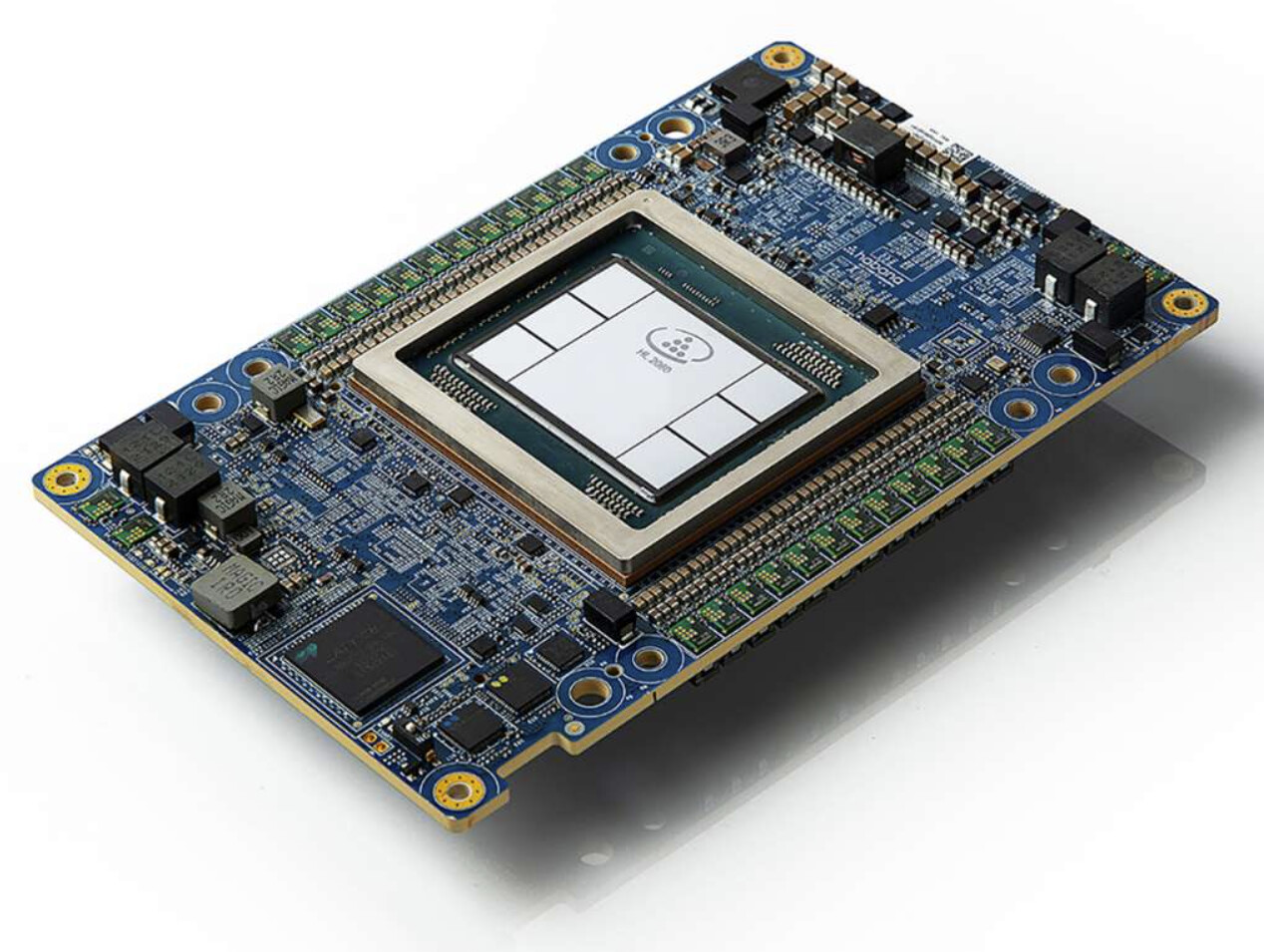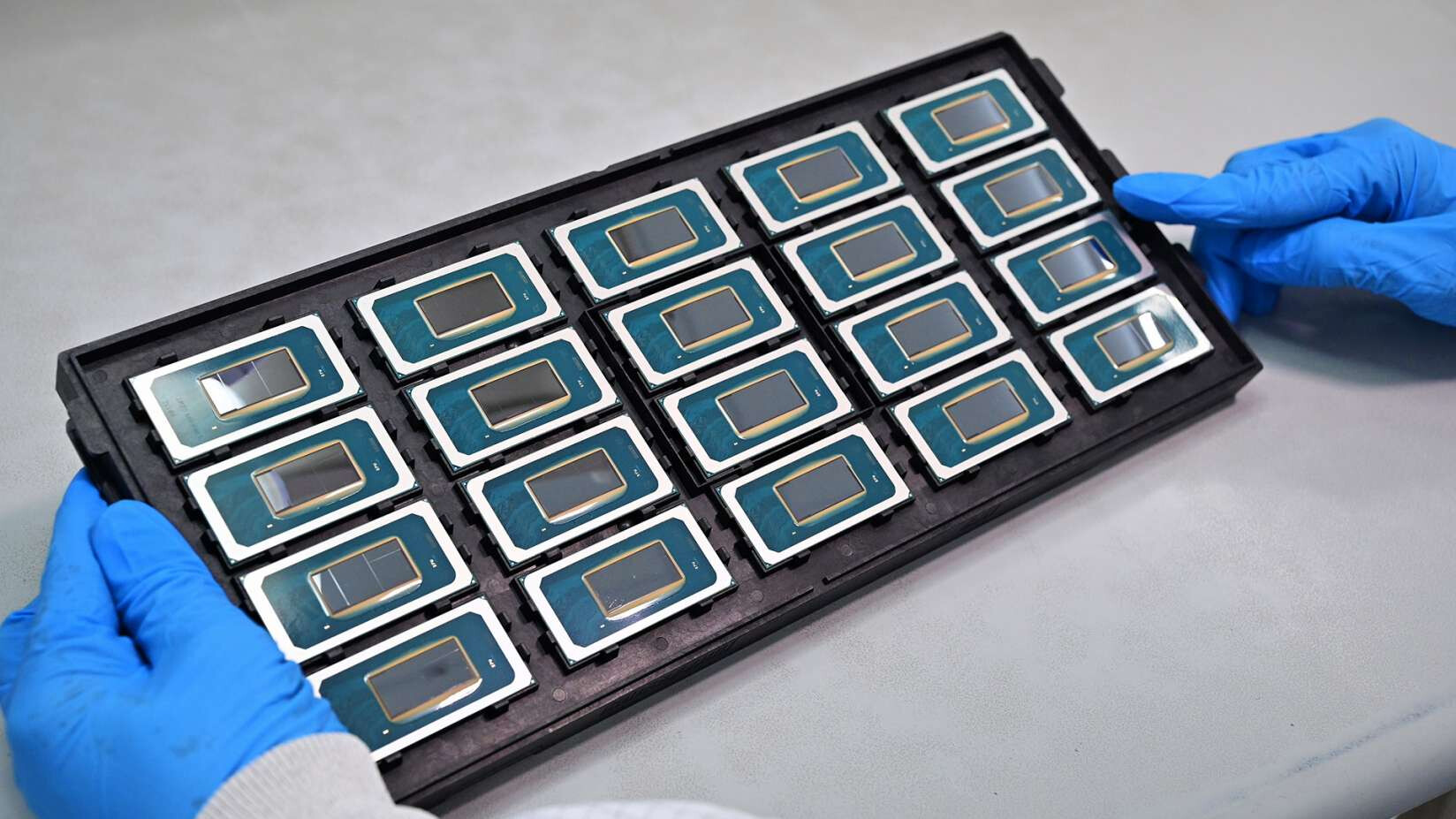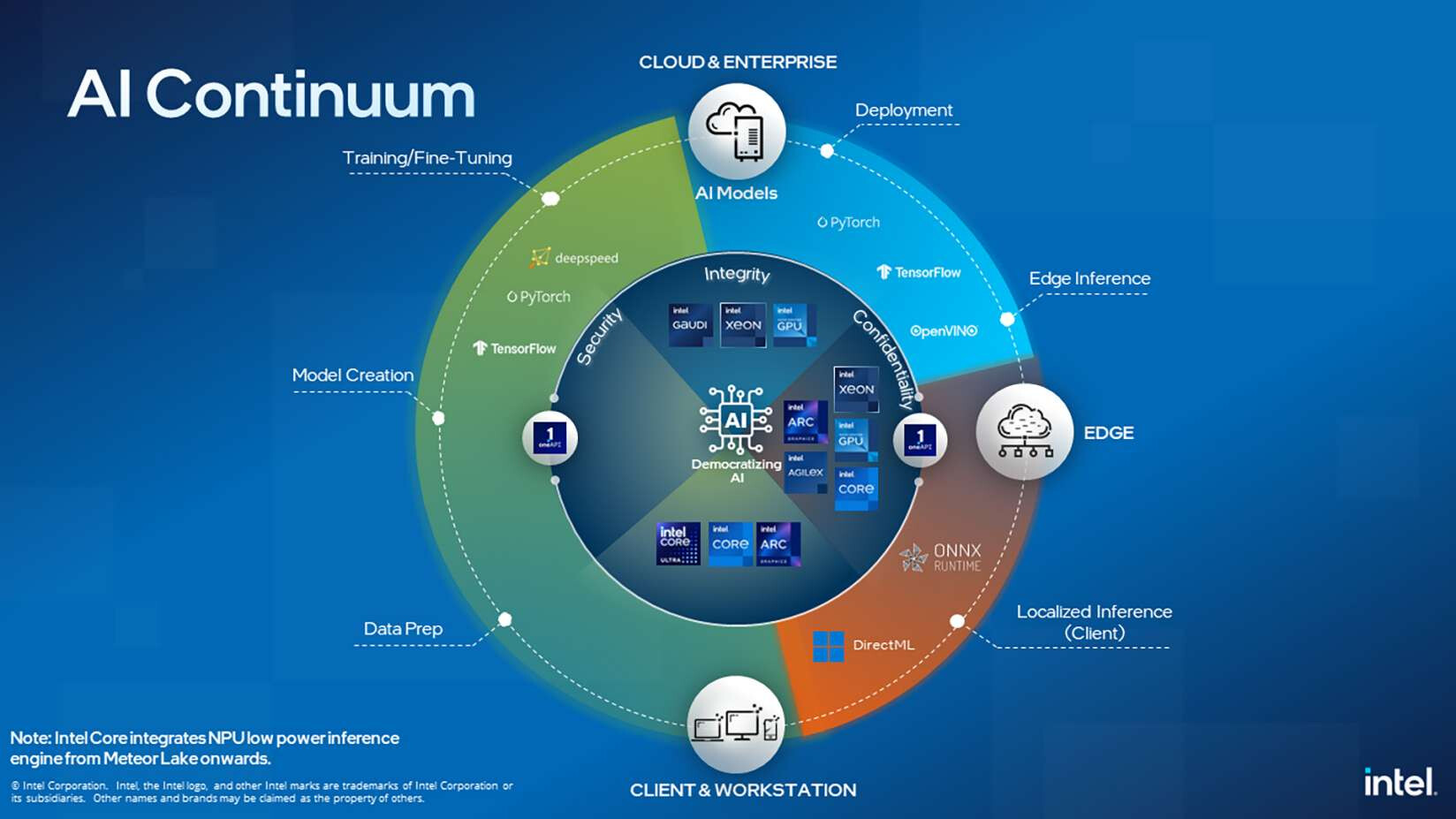Intel Innovation: Advancing AI Everywhere
As the world undergoes a generational shift towards artificial intelligence, we are entering a new era of global expansion driven by silicon. This era, known as the "Siliconomy," is characterized by AI-powered systems that possess autonomy and agency, assisting us in both knowledge-based and physical tasks within our daily lives.
At Intel Innovation, the company has introduced technologies to make AI more accessible and ubiquitous across various workloads, from client and edge to network and cloud. These advancements include easy access to AI solutions in the cloud, superior price performance for Intel data center AI accelerators compared to competitors, the shipment of millions of new AI-enabled Intel PCs in 2024, and tools for securely deploying AI at the edge.
AI necessitates a wide range of solutions developed with openness and security in mind to accelerate innovation. Intel's portfolio of AI-enabling hardware and software, including CPUs, GPUs, accelerators, the oneAPI programming model, OpenVINO developer toolkit, and AI ecosystem libraries, offers competitive, high-performance, and open-standards solutions that enable customers to quickly implement AI at scale.
Intel Developer Cloud: Now Available
Intel has announced the general availability of the Intel Developer Cloud, providing developers with an easy platform to test and deploy AI and high-performance computing applications across the latest Intel CPUs, GPUs, and AI accelerators. Developers can also utilize cutting-edge tools to enable advanced AI and performance.
The Intel Developer Cloud is built on a foundation of advanced CPUs, purpose-built for AI, along with GPUs and Intel Gaudi 2 processors for Deep Learning. It also offers open software and tools, granting access to the latest Intel hardware platforms, such as the upcoming 5th Gen Intel Xeon Scalable processors (code-named Emerald Rapids) launching on December 14, as well as the Intel Data Center GPU Max Series 1100 and 1550.
Developers can leverage the Intel Developer Cloud to build, test, and optimize AI and high-performance computing applications. They can also run AI training, model optimization, and inference workloads of various scales with enhanced performance and efficiency. The Intel Developer Cloud is based on an open software foundation with oneAPI, an open multiarchitecture, multivendor programming model, providing hardware choice and freedom from proprietary programming models to support accelerated computing, code reuse, and portability.
Customer and Performance Momentum in the Data Center
Intel has announced updates on AI performance and industry momentum for its data center and AI product portfolio. This includes Intel Gaudi2 and Gaudi3, 4th Gen Intel Xeon, 5th Gen Intel Xeon, and future-generation Xeon processors code-named Sierra Forest and Granite Rapids.
Notable announcements include the construction of a large AI supercomputer entirely powered by Intel Xeon processors and Intel Gaudi2 AI hardware accelerators, with Stability AI as the anchor customer. Additionally, Intel is collaborating with Dell Technologies to offer AI solutions for various AI workloads, and Alibaba Cloud has reported the viability of 4th Gen Xeon for real-time large language model inference in its model-serving platform DashScope.
Granite Rapids, Intel's upcoming processor, will feature industry-leading Performance-cores (P-cores) that offer superior AI performance compared to other CPUs, delivering a 2x to 3x boost over 4th Gen Xeon for AI workloads.
New AI Experiences Powered by Intel Core Ultra Processors
Intel is set to introduce the era of the AI PC with its upcoming Intel Core Ultra processors, code-named Meteor Lake. These processors will feature Intel's first integrated neural processing unit (NPU) for power-efficient AI acceleration and local inference on PCs. The launch of Core Ultra is scheduled for December 14.
Core Ultra processors provide low-latency AI compute that is connectivity-independent, ensuring stronger data privacy. The integration of an NPU into client silicon for the first time enables low-power and high-quality AI experiences. Core Ultra represents a significant milestone in Intel's client processor roadmap, as it is the first client chiplet design enabled by Foveros packaging technology. In addition to the NPU, Core Ultra processors offer major advancements in power-efficient performance with Intel 4 process technology and discrete-level graphics performance with onboard Intel Arc graphics.
Intel has collaborated with Acer to showcase AI capabilities in upcoming Core Ultra systems. The "Acer Parallax" software feature utilizes the NPU to add a 3D look and feel to user images, enhancing the overall user experience.
Powering AI at the Edge
The potential for edge computing is vast, driven by the demand for AI-driven automation and data analysis. Intel's OpenVINO is the preferred AI inferencing and deployment runtime for developers on client and edge platforms. With the OpenVINO developer toolkit, Intel is making AI at the edge even more accessible. Developer downloads of the OpenVINO toolkit have seen a 90% year-over-year increase in the past year alone.
OpenVINO 2023.1, powered by oneAPI, enables developers to utilize generative AI for real-world scenarios, allowing them to write code once and deploy it across a wide range of devices and AI applications. The latest release, available for download on OpenVINO.ai, brings Intel closer to the vision of running any model on any hardware anywhere. OpenVINO 2023.1 offers optimization for standard PyTorch, TensorFlow, or ONNX models, full support for forthcoming Core Ultra processors, additional model compression techniques, improved GPU support, and enhanced memory consumption for dynamic shapes. It also provides portability and performance across the entire compute continuum, including cloud, client, and edge environments.
During the Innovation Day 1 keynote, Intel showcased Fit:match, an AI solution that enhances the retail fitting-room experience. Fit:match utilizes Intel RealSense Depth Cameras with lidar sensors, Intel Core processors, and OpenVINO to scan and match thousands of products, ensuring an optimal fit for customers. This solution improves purchasing conversions and reduces return rates while prioritizing security and privacy.



